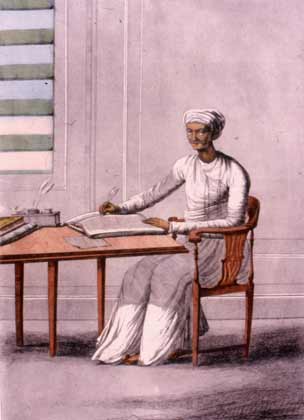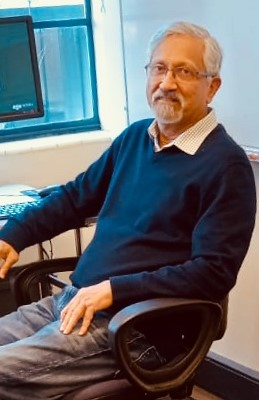
Desi is a loose term used to describe the people,cultures,and products of the Indian subcontinent and their diaspora,derived from Sanskrit देश(deśá),meaning "land,country". Desi traces its origin to the people from the South Asian republics of India,Pakistan and Bangladesh,and may also sometimes include people from Nepal,Sri Lanka,Bhutan and the Maldives.

The University of Toronto Scarborough,also known as U of T Scarborough or UTSC,is one of the three campuses that make up the tri-campus system of the University of Toronto. Located in the Scarborough district,Toronto,Ontario,Canada,the campus is set upon suburban parkland next to Highland Creek. It was established in 1964 as Scarborough College,a constituent college of the Faculty of Arts and Science. The college expanded following its designation as an autonomic division of the university in 1972 and gradually became an independent institution. It ranks last in enrolment size among the three University of Toronto campuses,the other two being the St. George campus in Downtown Toronto and the University of Toronto Mississauga.

The University of Madras is a public state university in Chennai,Tamil Nadu,India. Established in 1857,it is one of the oldest and among the most prominent universities in India,incorporated by an act of the Legislative Council of India under the British government.

Kayastha or Kayasth denotes a cluster of disparate Indian communities broadly categorised by the regions of the Indian subcontinent in which they were traditionally located—the Chitraguptavanshi Kayasthas of North India,the Chandraseniya Kayastha Prabhus of Maharashtra,the Bengali Kayasthas of Bengal and Karanas of Odisha. All of them were traditionally considered "writing castes",who had historically served the ruling powers as administrators,ministers and record-keepers.
Indian English literature (IEL),also referred to as Indian Writing in English (IWE),is the body of work by writers in India who write in the English language but whose native or co-native language could be one of the numerous languages of India. Its early history began with the works of Henry Louis Vivian Derozio and Michael Madhusudan Dutt followed by Rabindranath Tagore and Sri Aurobindo. R. K. Narayan,Mulk Raj Anand and Raja Rao contributed to the growth and popularity of Indian English fiction in the 1930s. It is also associated,in some cases,with the works of members of the Indian diaspora who subsequently compose works in English.

The British Raj was the rule of the British Crown on the Indian subcontinent;it is also called Crown rule in India,or Direct rule in India,and lasted from 1858 to 1947. The region under British control was commonly called India in contemporaneous usage and included areas directly administered by the United Kingdom,which were collectively called British India,and areas ruled by indigenous rulers,but under British paramountcy,called the princely states. The region was sometimes called the Indian Empire,though not officially.

The Annamalai University is a public state university in Chidambaram,Tamil Nadu,India. The 1,500-acre (6.1 km2) sprawling campus offers courses of higher education in arts,science,engineering,management,humanities,agriculture,and physical education. The university also provides more than 500 courses through distance education. With over 32,480 students residing on campus,it is one of the largest teaching,and residential universities in Asia,and is among the most reputed and ranked universities in India including the rankings from NIRF,QS World University Rankings,Times University Rankings,CWTS Leiden Ranking,India Today Magazine,India Today MDRA,AISHE,ARIIA,SCImago Institutions Rankings.

Palm-leaf manuscripts are manuscripts made out of dried palm leaves. Palm leaves were used as writing materials in the Indian subcontinent and in Southeast Asia dating back to the 5th century BCE. Their use began in South Asia and spread to other regions,as texts on dried and smoke-treated palm leaves of the Palmyra or talipot palm. Their use continued until the 19th century when printing presses replaced hand-written manuscripts.
Krishna Kumar is an Indian intellectual and academician,noted for his writings on the sociology and history of education. His academic oeuvre has drawn on multiple sources,including the school curriculum as a means of social inquiry. His work is also notable for its critical engagement with modernity in a colonized society. His writings explore the patterns of conflict and interaction between forces of the vernacular and the state. As a teacher and bilingual writer,he has developed an aesthetic of pedagogy and knowledge that aspires to mitigate aggression and violence. In addition to his academic work,he writes essays and short stories in Hindi,and has also written for children. He has taught at the Central Institute of Education,University of Delhi,from 1981 to 2016. He was also the Dean and Head of the institution. From 2004 to 2010,he was Director of the National Council of Educational Research and Training (NCERT),an apex organization for curricular reforms in India. He was awarded the Padma Shri by the President of India in 2011.
Ritu Birla is an historian of modern South Asia. She is an associate Professor of History and is formerly the Richard Charles Lee Director of the Asian Institute and former Director of the Centre for South Asian Studies at the Munk School of Global Affairs &Public Policy at the University of Toronto.

Vidya Dehejia is a retired academic and the Barbara Stoler Miller Professor Emerita of Indian and South Asian Art at Columbia University. She has published 24 books and numerous academic papers on the art of South Asia,and has curated many exhibitions on the same theme.
Karanam or Karnam was an office and title native to the Indian states of Andhra Pradesh and Telangana. Traditionally,Karanam was an official who maintained the accounts and records of the villages and collected the taxes. Karanam was one of the two village-level administrative posts that existed in Andhra along with 'Munasabu' (Munsiff). The Karanam kept an elaborate system of village accounts.

Sathyapriya Bhavani Shankar is an Indian actress and former television presenter who primarily appears in Tamil films,in addition to a few Telugu films. She made her acting debut with commercially successful Tamil film Meyaadha Maan (2017).
Rajeswari Sunder Rajan is an Indian feminist scholar,a professor in English,and author of several books on issues related to feminism and gender. Her research interest has covered many subjects such as of the pre and post colonial period,Indian English writing,gender and cultural issues related to South Asia,and the English literature of the Victorian era. She has also edited a series called the "Issues in Contemporary Indian Feminism",and "Signposts:Gender Issues in Post-Independence India". She has authored many books of which the notable ones are the Scandal of the State:Women,Law and Citizenship in Postcolonial India and Real and Imagined Women:Gender,Culture and Postcolonialism.

Uppum Mulakum is an Indian Malayalam-language sitcom,that has been broadcast on Flowers since 14 December 2015. The sitcom was created by R. Unnikrishnan,who also directs it,after he returned to the director role in the second season. Uppum Mulakum depicts the everyday life of Balachandran Thampi,his wife Neelima,and their five children. The main cast includes Biju Sopanam,Nisha Sarang,Rishi S. Kumar,Juhi Rustagi,Al Sabith,Shivani Menon,Baby Ameya and Parvathy Ayyappadas. Baby Ameya joined the show as the newborn baby of Balachandran and Neelima in May 2018,when she was four months old and Parvathy Ayyappadas joined the main cast in February 2023,as the wife of elder son Vishnu.

Sembaruthi (transl. Hibiscus) is an Indian Tamil language drama airing on Zee Tamil. It premiered on 16 October 2017 and ended on 31 July 2022. The show stars debutante Shabana Shajahan and Tamil TV actor Karthik Raj along with actress Priya Raman,her comeback on television after years ago. It is an official remake of Zee Telugu series Muddha Mandaram. In December 2020,Karthik was replaced by presenter VJ Agni.
Kondaikatti Velaalar or Thondaimandala Mudaliar is a Tamil caste in south India. Historically,they were a caste of non-cultivating land-holders and some of them were administrators under various south Indian dynasties. Their original homeland was Thondaimandalam and from there they spread to other areas in south India and northeastern parts of Sri Lanka. Since they historically used the Mudaliar title,they are sometimes referred to as Thondaimandala Mudaliar. However,Kathleen Gough considers them to be a separate subcaste of the Thondaimandala Mudali,as does Susan Neild.

Kamala Harris is the 49th vice president of the United States. Harris was formerly the junior United States senator from California,and prior to her election to the Senate,she served as the 32nd attorney general of California. Her family includes several members who are notable in politics and academia.

Sekhar Bandyopadhyay is an Indian historian and a Fellow of the Royal Society Te Apārangi. Bandyopadhyay is known for his research on the Dalit caste of Bengal.
Uma Parameswaran is an Indo-Canadian writer,scholar,and literary critic. Her writing includes works of fiction and poetry,as well as plays and nonfiction. She is a retired professor of English at the University of Winnipeg.












